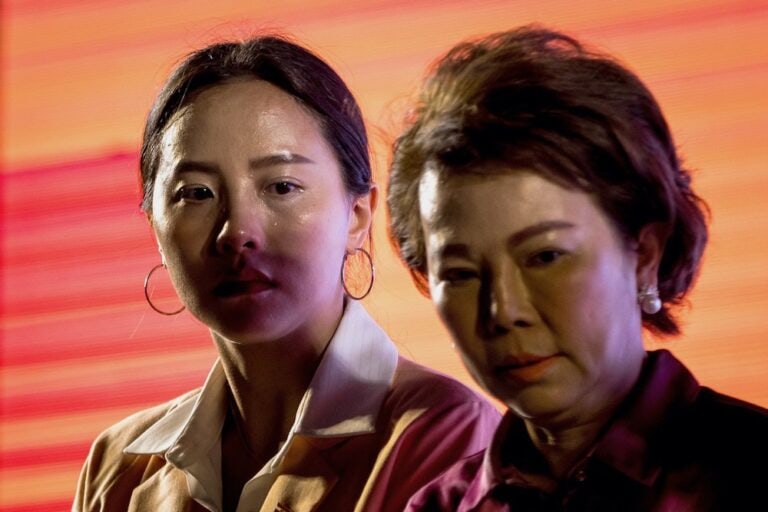(SEAPA/IFEX) – The following is a 20 May 2005 SEAPA capsule report: Thai journalists assert independence in the face of latest Thaksin outburst The Thai press is disturbed over recent criticisms from Prime Minister Thaksin Shinawatra, who has expressed displeasure over the media’s coverage of Thailand’s international standing. While Thaksin has long been known as […]
(SEAPA/IFEX) – The following is a 20 May 2005 SEAPA capsule report:
Thai journalists assert independence in the face of latest Thaksin outburst
The Thai press is disturbed over recent criticisms from Prime Minister Thaksin Shinawatra, who has expressed displeasure over the media’s coverage of Thailand’s international standing.
While Thaksin has long been known as thin-skinned and has had many testy episodes with specific members of the Thai press, his latest run-in with the media involves – for the first time – a sweeping attack on the Thai Journalists Association (TJA) itself.
Over the past two weeks, Thaksin has been smarting from media coverage of allegedly anomalous government transactions for state-of-the-art bomb detectors for a new international airport in Bangkok. In the past week, meanwhile, the Prime Minister was further upset by published news that Thailand’s performance in the areas of good governance and corruption control has slipped in the eyes of the World Bank.
On 11 May, Thaksin castigated Bangkok’s “Matichon” daily for what he called a “misleading and destructive” headline on the World Bank story. The headline, which read, ”Thai government’s good governance declined, corruption control failed, World Bank says”, was based on the World Bank’s 2004 global survey for good governance in 209 countries.
When the TJA – Thailand’s biggest and most influential journalist association, and a founding member of the Southeast Asian Press Alliance – stood by Matichon, Thaksin lashed out at the professional group, castigating TJA for supposedly being immature and lacking respect for the government.
In his weekend radio address to the public on 13 May, Thaksin suggested that the TJA had a hidden agenda in protecting Matichon. He noted that Matichon publishing group senior editor Prasong Lertrattanawisute – a noted investigative journalist who reported in 2000 on Thaksin’s allegedly concealed assets and whose report led to unsuccessful impeachment proceedings against the then newly-elected prime minister a year later – is TJA secretary general.
On 14 May, the TJA asserted its independence from all interests and stressed that “the association is determined to protect freedom of the press regardless of which news organization” or individual journalist is being attacked.
The TJA said Thaksin should strive to improve governance and clear his administration of all allegations and questions of impropriety, instead of taking issue with how the press should report about him and his government.
Thaksin has had numerous run-ins with the press since he became prime minister in 2001. He and his allies in the business community wield tremendous influence on media companies, either through its Board rooms, via a substantial amount of advertising revenue that they control, or by waging crippling legal battles against critical media and its proponents.
Shin Corp – Thailand’s biggest telecommunications conglomerate, which is run by Thaksin’s family – has sued a newspaper for defamation and is seeking $10 million in damage from a media researcher, for having noted a substantial spike in Shin’s profits coinciding with Thaksin’s rise to power.
An economics professor from Thammasat University, Prof. Rangsan Thanapornpan, noted in a recent TJA-sponsored forum that media independence – and professionalism – has declined in Thailand in recent years, and blamed the phenomenon on commercialism and intertwining business and political interests in media ownership. He expressed concern over the media’s vulnerability to capitalists, politicians, and those in power.


